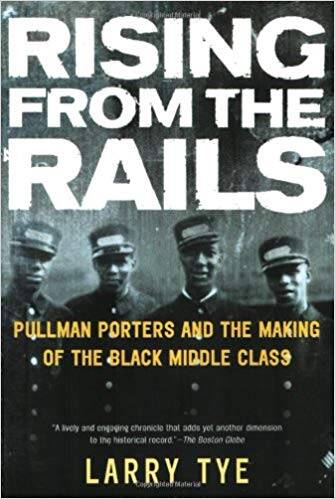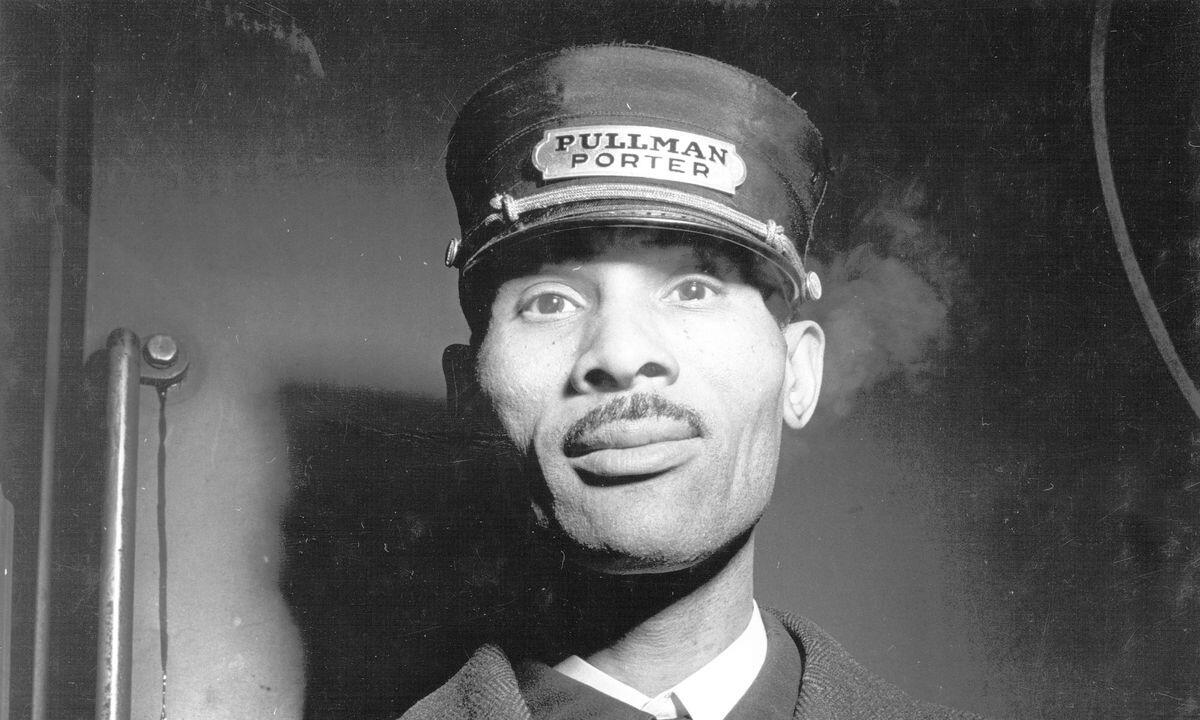 History is not only about wars and revolutions, disasters and discoveries, the famous and the infamous. No, it’s also about the common people, working men and women, what they accomplished and how they strove to improve living conditions for themselves, their families and their communities.
History is not only about wars and revolutions, disasters and discoveries, the famous and the infamous. No, it’s also about the common people, working men and women, what they accomplished and how they strove to improve living conditions for themselves, their families and their communities.
With that in mind, let’s help celebrate Black History Month by recalling an often-overlooked contribution to 20th century jazz by men who were neither performers, critics or promoters of the music. These men were the Pullman porters.
For a hundred years, from the end of the Civil War until the late 1960s, the Pullman Company, which built sleeping cars for passenger railways, hired black porters to serve its overnight travelers. Those sleepy passengers were invariably well-heeled whites.
In his book, Rising from the Rails, longtime Boston Globe reporter Larry Tye chronicles the history of this almost-forgotten profession, one that pioneered Negro labor unionizing and, as Tye’s subtitle maintains, helped forge a black middle class.
Along the way, Tye argues that railroad porters played a crucial role in the spread of jazz across the continent in the 1920s and ’30s.
First, he writes, it must be understood that blacks viewed porters much differently than whites did.
“To whites who watched him on the train or film screen, [the porter] epitomized servility. To black neighbors and friends, he personified sophistication and urbanity. He was a man of worlds they would never see or experience. And the porter did more than pass through those worlds. He helped disseminate the culture he saw and tasted to black Americans and whites in ways that writers and moviemakers seldom appreciated or reflected.

“He picked up, read and passed on newspapers and magazines that passengers left behind. He did something similar with music. In cities like Chicago and New York, the porter would buy dozens of the latest [recordings] of the sultry Bessie Smith and Mother of the Blues Ma Rainey. He resold them, often for twice the price, in communities across the South where the local department store, if there was one, did not stock black artists. Buyers got not just the records but their first look at revolutionary music forms like jazz.”
To substantiate this assertion, Tye cites no less than four sources including W.C. Handy’s autobiography, Father of the Blues and Lawrence Levine’s Black Culture and Black Consciousness.
Not only did porters buy and sell the latest phonograph records, they also rubbed shoulders with traveling musicians, from scuffling piano plunkers to big-name bandleaders.
“Porters and dining car men also got to mingle with musicians like Duke Ellington, Benny Goodman, and Louis Armstrong,” Tye writes in chapter 5, “Behind the Mask.”
“They traveled the country on Pullman sleepers and played their pianos, clarinets, and trumpets late into the night in the club car where porters listened, learned, and passed on what they picked up. It worked in the reverse too: porters spent time in the hamlets and villages of rural America where the blues and bluegrass were born, and they recounted what they had heard when they got home to the city or talked to troubadours on the train.”
Former dining-car waiter Joseph Strowder told Tye, “When we would go South we’d go into the black neighborhoods and talk to the people we were dancing with. The music there was different. They had a whole lot of blues, whereas we were used to swing and jazz and all like that.”
In his review of Tye’s book, Booklist critic Vernon Ford noted that Chicago-based industrialist George Pullman paid the porters low wages, made them work long hours, and spend weeks and months away from home. “In addition, they were expected to adopt a servile demeanor to provide comfort to the mostly white patrons of the Pullman sleeping cars. But the upside was employment, travel, and middle-class values and opportunities. Moreover, the fight for union recognition through A. Phillip Randolph’s leadership was the basis for progress for blacks during the pre-civil rights era. The porters’ labor dispute and efforts to include blacks in more favorable positions in the war industry led to the first march on Washington.”
And that’s how hard-working men, common men, make history.
Rising from the Rails: Pullman Porters and the Making of the Black Middle Class, by Larry Tye (2004, Henry Holt & Co., New York; 315 pages; $15/paperback)
Russ Tarby is based in Syracuse NY and has written about jazz for The Syncopated Times, The Syracuse New Times, The Jazz Appreciation Society of Syracuse (JASS) JazzFax Newsletter, and several other publications.






















